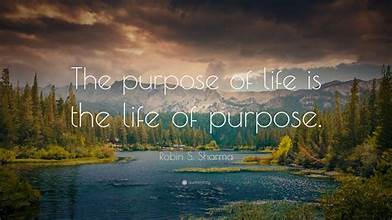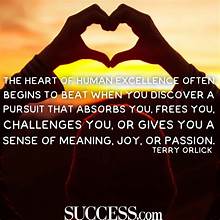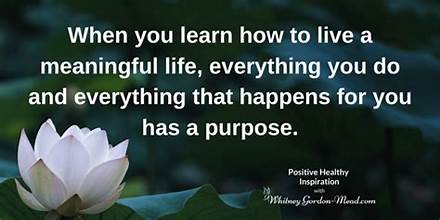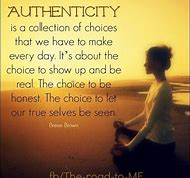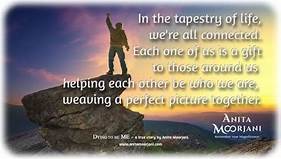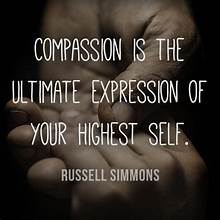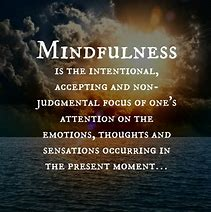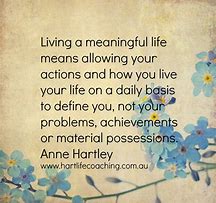Joan Chittister is an American Benedictine nun, theologian, author, and speaker. Monthly she publishes the Monastic Way which provides “daily insights to stir the heart and soul.” The March 2024 edition focused on the purpose of life and she shared, “The purpose of life is not worked out in any single moment. It is seen only in the patterns we create or in the options we refuse. Aldous Huxley says of it, “At any given moment, life is completely senseless. But viewed over a period, it seems to reveal itself as an organism existing in time, having a purpose, tending in a certain direction.” ”
I reflected for quite some time on her words, especially that the purpose of life “…is seen only in the patterns we create or in the options we refuse.” If our life journey is to be a meaningful one, we really do need to care about the patterns we create through our thoughts, words, and deeds. We also need to care about the options we refuse such as choosing between good and evil, positive and negative, or right and wrong. A meaningful life is one that is grounded in a sense of purpose that goes beyond our day-to-day routines. Living a meaningful life involves authenticity, purpose, connection, compassion, living with intention in the present moment (mindfulness), and positive thinking. This week, let’s explore these six components in an effort to help us live meaningfully; in an effort to help us create the best possible “patterns” and make good choices in the “options we refuse.”
AUTHENTICITY. St. Francis de Sales (late 16th/early 17th century Bishop of Geneva who is honored as a saint in the Anglican and Catholic churches, known for his writings on the topic of spiritual direction and spiritual formation) says it best: “Be who you are and be that well.” We just need to be ourselves (and not an imitation of someone else). When we don’t worry about what others think, we can live more freely and we have a far better chance of living a life that creates patterns which lead to meaning and purpose.
PURPOSE. Having a purpose influences our ability to live a meaningful life. Is your purpose in life to teach others, inspire or motivate others, to help others, to lead others, to serve others, to heal others…? What can you do to use/share to the fullest your skills, talents, or strengths? What gives you a reason to get out of bed each morning and get on with the day? Remember, we add more meaning to whatever we do if our actions reflect our principles and values.
CONNECTION. Having a connection with others – family, friends, colleagues – helps provide a sense of purpose in our lives which in turn leads to a more meaningful life.
COMPASSION. When we have empathy for others – when we see things with the eyes of another, listen with the ears of another, and feel with the heart of another – we are able to better understand what others are dealing with or going through. And when we want to do something to alleviate that pain or distress, we exemplify compassion. When we do help others, our own feelings of purpose and meaning are elevated.
MINDFULNESS. Abraham Joshua Heschel (a Polish-born American rabbi and one of the leading Jewish theologians and Jewish philosophers of the 20th century) said, “Life is routine and routine is resistance to wonder.” I would add that routine keeps us from realizing what is most meaningful moment-to-moment. When we operate on auto-pilot and fill our days with the routine, we often tune out much going on around us. We don’t see the gorgeous sunrise or the beauty of the autumn leaves or the smile something we did brought to the face of another. But, if in our daily routine we take time to savor what is happening around us – if we take time to appreciate the present moment – then routine moments will become meaningful moments. If we become mindful, the intentionally-focused awareness of our immediate experience, we position ourselves to notice the meaningful moments in our life.
POSITIVE THINKING. Attitude is a mental position relative to a way of thinking or being; a leaning toward that which we believe. A positive attitude is, therefore, the tendency to be in an optimistic, hopeful state of mind. A positive attitude manifests itself in positive thinking. Positive thoughts generate positive feelings and attract positive life experiences. Positive thinking gives us power over our circumstances. If we let positive thinking guide us, it is easier to glean the meaning from daily activities. It is easier to say yes to all of life’s experiences because we work from a foundation that keeps us uplifted and willing to face challenges. As Chittister says, “Life is about finding good everywhere, in everything. There is really no such thing as “bad” in life, only things in which we have yet to discover the good that came out of them.” Positive thinking will help us find the good that does surround us.
We should all want to lead a meaningful, purposeful life and we can do so by being authentic, having a purpose, staying connected to others, showing compassion, living with intention in the present moment, and by thinking positively. If we stay true to our values and principles, the patterns we create and the options we refuse we help lead us to purposeful filled life, one full of meaning, wonder, and experiences that bring us moments of awe!
